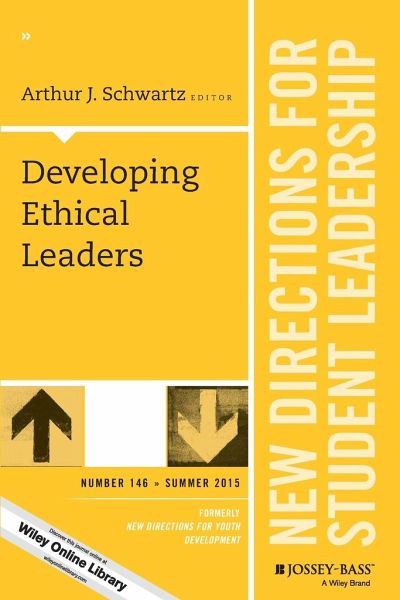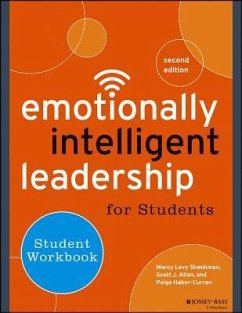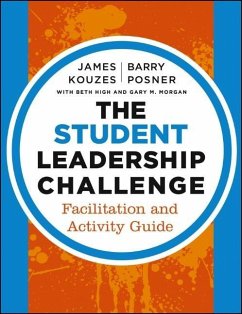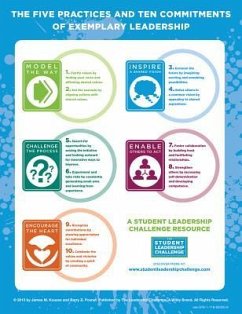
Developing Ethical Leaders
New Directions for Student Leadership, Number 146
Herausgeber: Schwartz, Arthur J
Versandkostenfrei!
Versandfertig in über 4 Wochen
27,99 €
inkl. MwSt.
Weitere Ausgaben:

PAYBACK Punkte
14 °P sammeln!
The call for our schools and universities to develop ethical leaders has never been stronger. This volume offers new approaches to equipping our student leaders with the skills, competencies, and courage to act in an ethical manner, even in the face of peer pressure, tradition, or convention. Each chapter includes: * Ideas and strategies to help student leaders become more ethically fit * Ways to challenge students to pursue what is ethical and right rather than simply avoiding what is wrong or illegal * Examples of words, phrases, and red flag situations, along with effective responses, that ...
The call for our schools and universities to develop ethical leaders has never been stronger. This volume offers new approaches to equipping our student leaders with the skills, competencies, and courage to act in an ethical manner, even in the face of peer pressure, tradition, or convention. Each chapter includes: * Ideas and strategies to help student leaders become more ethically fit * Ways to challenge students to pursue what is ethical and right rather than simply avoiding what is wrong or illegal * Examples of words, phrases, and red flag situations, along with effective responses, that can be practiced and taught * Six different leadership models to help understand the dynamics and potentials of ethics-related leadership The Jossey-Bass quarterly report series New Directions for Student Leadership explores leadership concepts and pedagogical topics of interest to high school and college leadership educators. Issues are grounded in scholarship and feature practical applications and best practices in youth and adult leadership education.













